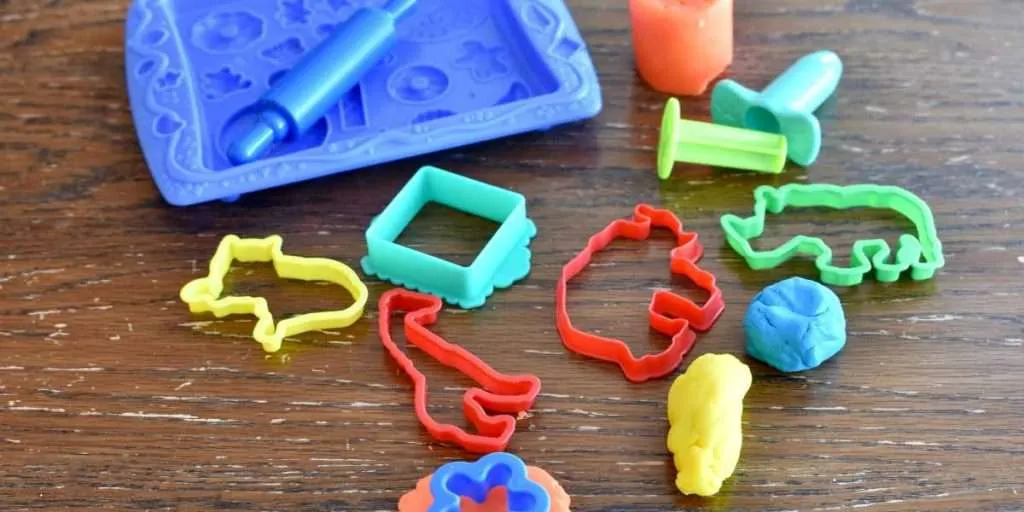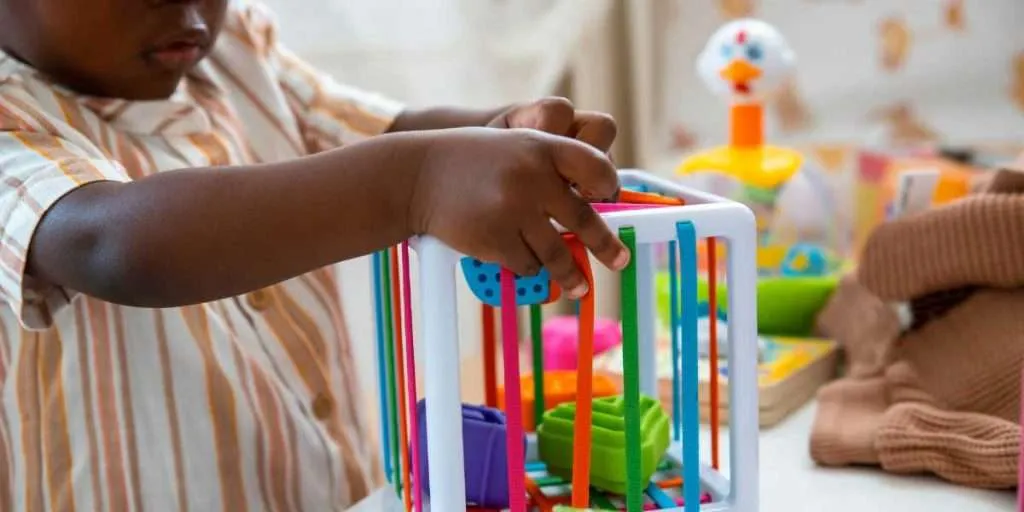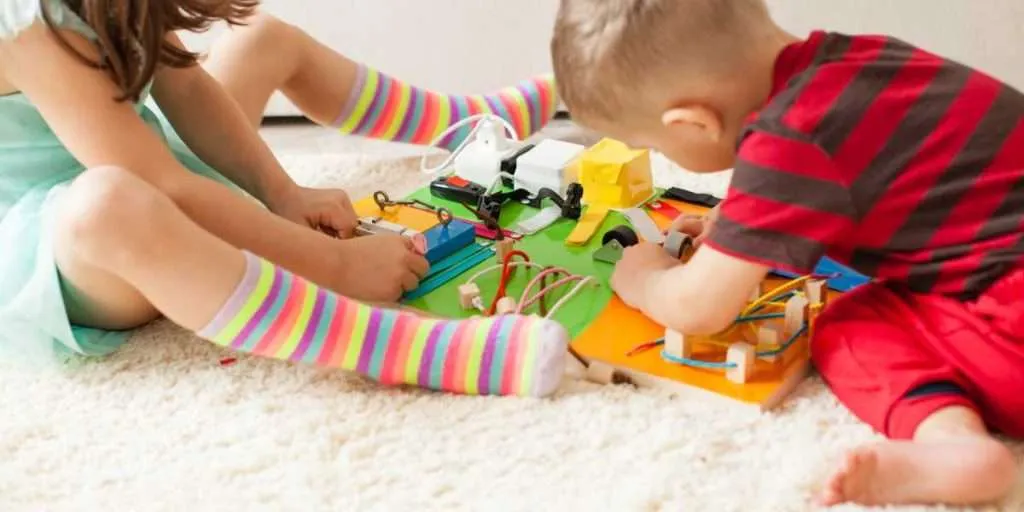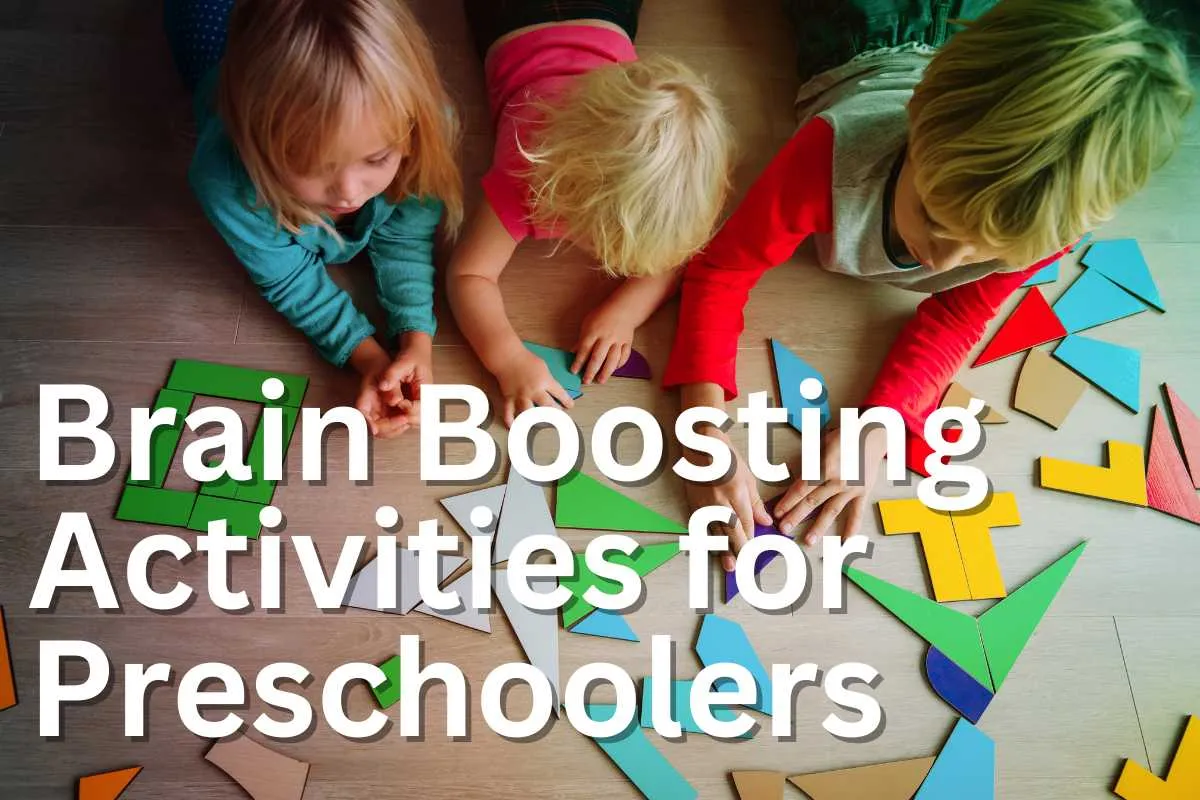Are you eager to ignite your toddler’s cognitive development with activities that not only entertain but also stimulate the brain? If so, you’re in good company. Many parents and caregivers are on the hunt for ways to harness these formative years and optimize their child’s learning potential.
Fortunately, there’s a treasure trove of brain-boosting activities tailored for toddlers, designed to enhance cognitive functions, creativity, and critical thinking.
Drawing from my expertise in early childhood development and cognitive enrichment, I’ve curated a comprehensive guide spotlighting the top brain-boosting activities that are currently favored by educators and developmental experts.
Let’s journey through these stimulating adventures and guide you towards activities that promise to nurture your toddler’s intellect and imagination.
Quick Summary
| Activity | Description | Brain-Boosting Benefit |
|---|---|---|
| Puzzle Play | Simple jigsaw puzzles or shape sorters. | Enhances problem-solving skills and spatial awareness. |
| Reading | Reading picture books or interactive touch-and-feel books. | Boosts language skills, vocabulary, and imagination. |
| Singing & Music | Singing nursery rhymes or playing with musical instruments. | Improves memory, rhythm recognition, and language development. |
| Building Blocks | Stacking blocks or using construction sets. | Fosters creativity, motor skills, and spatial reasoning. |
| Outdoor Exploration | Nature walks or playing in a sandbox. | Enhances sensory development and curiosity about the environment. |
| Art & Craft | Drawing, painting, or simple crafts. | Stimulates creativity, fine motor skills, and color recognition. |
| Imaginative Play | Role-playing with dolls or toy sets. | Develops social skills, empathy, and imagination. |
| Tactile Play | Playing with playdough, slime, or sensory bins. | Encourages sensory exploration and tactile development. |
| Counting Games | Simple counting using fingers or toys. | Introduces basic math concepts and number recognition. |
| Memory Games | Games like “peek-a-boo” or matching card games. | Enhances memory and concentration. |
| Physical Activities | Dancing, hopping, or obstacle courses. | Supports motor development, coordination, and physical health. |
| Sorting & Categorizing | Sorting toys by color, size, or type. | Boosts logical thinking and pattern recognition. |
Why are Brain Boosting Activities Important for Young Children?
Brain-boosting activities are crucial for young children for a variety of reasons:
- Neurological Development: During the first few years of life, a child’s brain undergoes rapid development. Engaging activities stimulate neural connections, laying the foundation for cognitive, motor, and sensory pathways as new neural pathways are formed.
- Foundation for Learning: These activities equip children with essential skills needed for formal education. For instance, puzzles can enhance problem solving skills, while reading can develop language comprehension.
- Emotional and Social Growth: Interactive activities, especially those involving peers or caregivers, help children understand emotions, develop empathy, and learn social cues. This is essential for building healthy relationships and emotional intelligence
- Physical Development: Activities that involve movement, be it fine motor skills like drawing or gross motor skills like jumping, play a pivotal role in developing a child’s physical agility and coordination.
- Creativity and Imagination: Brain-boosting activities, especially unstructured play, give children the freedom to imagine, innovate, and express themselves. This fosters creativity, a crucial skill not just in the arts but in problem-solving and innovative thinking.
- Building Confidence and Independence: As children navigate challenges and succeed, they develop a sense of accomplishment. This boosts their confidence and encourages their thinking skills and emotional skills.
- Attention and Focus: Engaging activities train children to concentrate on tasks at hand, improving their attention span and ability to focus —skills vital for academic and later-life achievements and just for everyday life.
- Preparation for Real-world Challenges: Many of these activities mimic real-world scenarios, helping children understand cause and effect, consequences of actions, logical reasoning and basic problem-solving strategies – really helping their mental health and brain health.
- Enhances Memory: Activities that challenge the brain, like memory games or learning through songs, can strengthen a child’s memory retention and recall abilities.
- Encourages Curiosity: Engaging activities often prompt questions, helping children develop a sense of curiosity and a love for learning, traits that are valuable throughout life.
- Developing Resilience: Through challenges, even simple ones like a tough puzzle or a difficult building block structure, children learn persistence, patience, and the ability to cope with failures.
- Strengthening Parent-Child Bonds: Many brain-boosting activities involve or can be enhanced with parental participation. This not only amplifies the learning experience but also strengthens the bond between the child and the parent.
In essence, brain-boosting activities are not just about immediate skill development. They lay the groundwork for a child’s overall well-being, shaping their cognitive, emotional, physical, and social futures. Given the rapid brain development in early years, it’s a prime time to provide children with enriching experiences that will benefit them for a lifetime.

15 Brain Boosting Activities for Toddlers
1. Puzzle Play
Puzzles range from simple wooden peg puzzles to more intricate jigsaw pieces. Opt for puzzles for brain games with vibrant colors and familiar objects. These promote hand-eye coordination, spatial reasoning, and problem-solving skills while boosting concentration and patience.
Puzzles have amazing brain boosting benefits, and when children are involved in a fun game with a cognitive function, there are many health benefits, not just brain development. When children play games
2. Storytime
Create a cozy reading nook and incorporate interactive books with flaps, textures, or sounds. Reading skills fosters language development, comprehension, and cognitive growth, and instills a love for literature.
3. Sensory Bins
Use varied base materials like water, sand, or rice and rotate items such as magnetic toys or scoops. Sensory bins activate the senses, refine motor skills, and can introduce concepts like volume and texture into these fun activities.
4. Music and Movement
Have a diverse playlist of children’s songs and integrate props like scarves. Dancing and singing enhance motor skills, rhythm, memory, and emotional expression.
5. Block Building
Provide blocks of different sizes and materials, emphasizing open-ended play. Block play encourages creativity, spatial intelligence, and hand-eye coordination while introducing concepts like balance.
6. Nature Walks
Prepare a nature checklist or gather objects for a collage, exploring various environments. Nature walks increase physical activity, observational skills, and appreciation for the environment.
7. Finger Painting
Allow toddlers to mix colors freely with non-toxic, washable paints. This activity nurtures creativity, color knowledge, sensory exploration, and can be a therapeutic medium.

8. Playdough Play
Rotate between types of playdough and introduce tools like rolling pins. Manipulating playdough improves motor skills, creativity, and tactile exploration.
9. Matching Games
Begin with basic card games and progress to more advanced ones as skills develop. A matching game
will sharpen working memory, pattern discernment, and concentration.
10. Water Play
Add elements like food coloring or ice for varied experiences, always ensuring supervision. Water play offers insights into cause and effect, volume, and the properties of liquids.
11. Hide and Seek
Use beloved toys or objects, adjusting the complexity of hiding spots over time. This game enhances problem-solving, spatial awareness, and the understanding of object permanence.
12. Sorting Activities
Utilize colorful items like buttons or fruit slices, and establish categories. Sorting bolsters categorization skills, color and shape recognition, and logical thinking.
13. Mirror Play
Incorporate a full-length or handheld mirror to explore facial expressions. This activity promotes self-awareness, emotional recognition, and observational skills.
14. Sticker Stories
Engage with themed sticker sets or a sticker diary, urging narration based on the scenes. Sticker activities foster creativity, vocabulary expansion, and fine motor skills.
15. Counting Activities
Embed counting into daily routines using visual aids or counting songs. These activities introduce foundational math concepts, number recognition, and sequential thought.

Spend time with them one on one
Spending really good one on one time with your 4-year-old is one of the best ways to give their brain a boost. Be present with them, talk to them, answer their questions, explore ideas with them.
Giving children our focused attention is also really important for their general development and wellbeing, and you will often find that by filling up their attention bucket you get a better response when you need them to play alone or cooperate with you.
Reading Together
Reading with your child is a great brain boosting activity. It’s great for boosting early literacy and listening skills and improving their vocabulary as well as sparking a love of reading. Reading together is also a great way of spending one on one time with a child.

Prioritise Sleep
Sleep is the time when your 4 year old is processing and filing away all the information they have absorbed during the day. Making sure they get enough sleep is vital for boosting brain power and brain function.
They benefit from better concentration and focus, more thinking power, improved memory, motor skills and self control, and they tend to generally be in a better mood.
Engage All Their Senses
Engaging all the senses while learning or playing is a great way to stimulate multiple areas of the brain at the same time. This means more brain connections are being made and learning is both faster and more effective.
There are lots of activities you could think of that will engage multiple senses at the same time. Scented play dough is a great option, playing with water or mud, listening to music while you play, or getting hands on with food while cooking.
Get Building
Whether it’s stacking blocks or building a complex lego model together, building is a great brain boosting activity and cognitive development. It requires spatial awareness, fine motor skills, critical and analytical thinking and problem solving ability.
Get Physical
You might not think of physical activity being something you are doing to boost your child’s brain power, but movement turns on the brain and actually assists learning as much it strengthens the physical body.
Movement helps the right and left sign of the brain work together which makes learning quicker and easier.
You can simply make sure your 4 year old gets up and gets active as often as possible, taking them outside in nature adds even more benefits. Or you could set up some structured physical activities like an obstacle course or throwing games that can also incorporate counting or colours.

Draw Pictures
Drawing is a multifaceted activity that profoundly influences a toddler’s brain development. As toddlers sketch, they refine their motor skills and hand-eye coordination. Simultaneously, they express emotions and ideas, boosting creativity and emotional intelligence.
Drawing also aids in understanding spatial relationships, shapes, and colors. Moreover, when narrating their artwork, toddlers enhance their vocabulary and communication skills, making drawing a holistic brain-boosting activity.
FAQS on Brain Boosting Activities
How can I stimulate my 4 year old’s brain?
Engaging a 4-year-old’s brain involves diverse activities. Reading together, playing educational games, exploring nature, and crafting can spark curiosity. Encourage questions, offer puzzles, and provide opportunities for imaginative play. These activities not only entertain but also foster cognitive growth and creativity.
What activities help brain development?
Activities that enhance brain development include reading, solving puzzles, playing musical instruments, and engaging in physical exercise. Social interactions, hands-on experiments, and art projects also stimulate neural pathways. Consistent exposure to varied learning experiences is key to holistic brain growth.
How can I improve my 3 year old’s brain?
For a 3-year-old, brain improvement comes from a mix of play and learning. Read aloud daily, introduce counting games, and encourage imaginative play with toys. Physical activities like dancing, playing catch, or even simple tasks like stacking blocks can boost cognitive and motor skills.
What is the best brain boosting activity?
The most effective brain-boosting activity varies by age and individual preference. However, reading consistently ranks high for all ages. It enhances vocabulary, comprehension, and critical thinking while stimulating imagination, offering both knowledge and mental escapism.
What is brain boosting activity?
A brain-boosting activity stimulates cognitive functions, enhancing skills like memory, attention, and problem-solving. This includes reading, puzzles, musical endeavors, physical exercise, and interactive games. Such activities challenge the mind, promoting growth and resilience in neural pathways.




